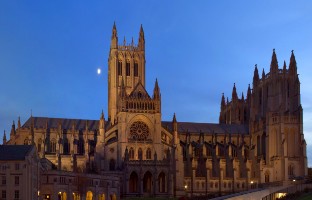Episcopal future: Is Anglican reconciliation possible?

The Episcopal Church in the United States (EC), like other denominations, has been in crisis over human sexuality. What is different for the EC is that it faces, in its debates, the question of whether or not its vocation is to be an American Protestant denomination or to be part of the worldwide Anglican Communion in which national particularity is submerged for the sake of common witness.
In June 2010 EC Presiding Bishop Katharine Jefferts Schori issued a pastoral letter that was a direct challenge to the archbishop of Canterbury and by extension to the Anglican Communion, of which Archbishop Rowan Williams is at least titular head. At stake is whether or not his headship can, or ought, to be more than titular; and if so, what would that mean?
The controversy had been brewing for some time, but a significant turning point came at the EC's General Convention of 2003 when V. Gene Robinson, an openly gay man in a partnered relationship, was approved as a bishop. Williams himself apparently had no personal objections to that move, judging from his writings prior to his elevation to Canterbury. However, as archbishop he saw his job to be that of holding together a widely—or wildly—diverse group of national or regional churches (provinces, in Anglican-speak). The reactions to the EC's 2003 actions were a mixture of cautious approval in some provinces and mild-to-outspoken disapproval in many others.




